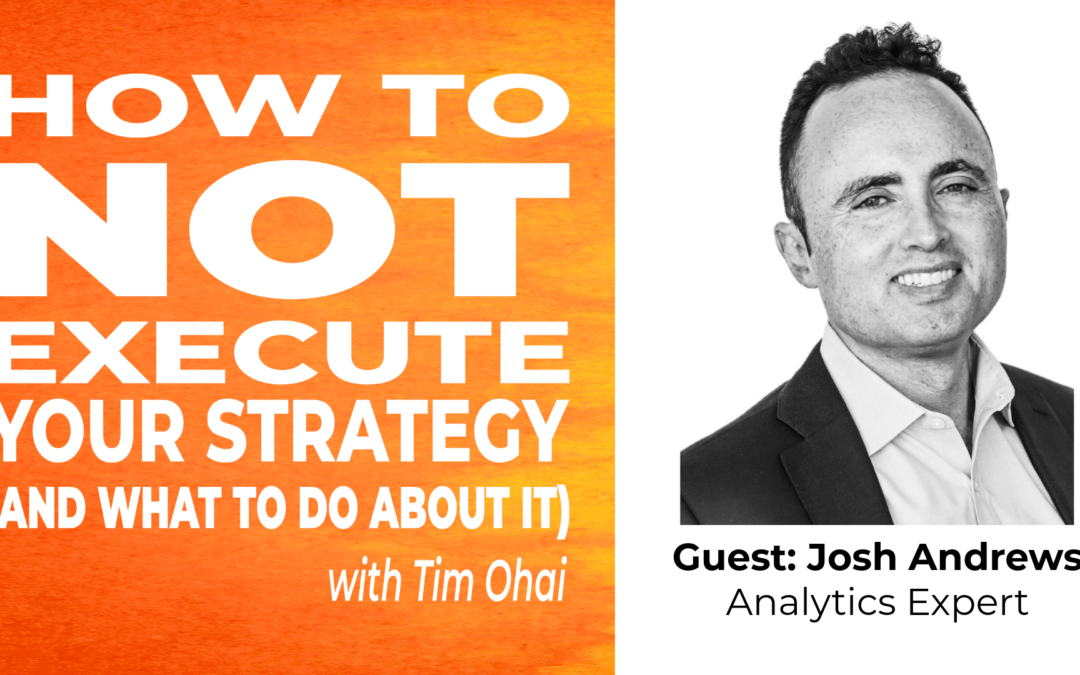How to NOT Execute Your Strategy (Episode 31): Josh Andrews
Josh Andrews is the former Head of Data and Analytics at Qvest, working with Fortune 500 organizations to construct and expand analytics platforms and data-driven efforts. Josh is now an independent consultant, helping businesses use their data to make better decisions. This conversation is packed with real talk – especially around the dysfunctions leaders both fight against – and create. From executive power struggles to ego clashes, Josh and Tim break down why so many teams get stuck and, more importantly, how to fix it.
- Find the audio version on your favorite platform or go directly via RSS.com
- Watch this episode on Youtube
Three key concepts:
- Your definition of success matters more than you realize. When teams are not operating with the same definition of success, you are guaranteed to generate waste and dysfunction. This also means that if you’re dealing with waste and dysfunction, you should quickly get everyone to redefine what success means so that your team can get back on track.
- Dependencies, dependencies, dependencies… Execution relies on your dependencies being addressed proactively. You do not have a good strategy to launch if the dependencies have not been identified before you start.
- Accountability must come with authority. Giving people authority without accountability will generate toxic behavior. And giving people accountability without authority will generate helplessness.
BONUS – Leader guide: Use the following questions for (a) self-reflection as a leader and/or (b) a great discussion with your team.
1) Listen to the full episode before this discussion.
2) Josh and Tim talked about what happens when authority and accountability are not balanced. Have you ever had this experience? What happened?
3) In 10 words or less, define what happens when authority and accountability are not balanced. Share your answers.
4) What do you think is a bigger problem: authority without accountability or accountability without authority? Why?
5) It’s critical that everyone has the right balance of authority and accountability for their role. What are the key obstacles (or even enemies) for creating this balance for everyone on our own team?
6) Looking at our efforts now, how balanced are we in the way we assign authority and accountability? Why do you think this? What leadership advice does this generate?
7) Option: Take time right now to define exactly what following that advice looks like (the outcome(s), metrics, and requirements).
If you enjoyed this episode, please share it with at least one person. And leave me a review on whatever platform you engaged this podcast. Your feedback is invaluable to me.
Holomua. Onward and upward.
All the best ~ Tim
PS Like what you’re reading? Please share this content with a friend so they can join the community.


Recent Comments